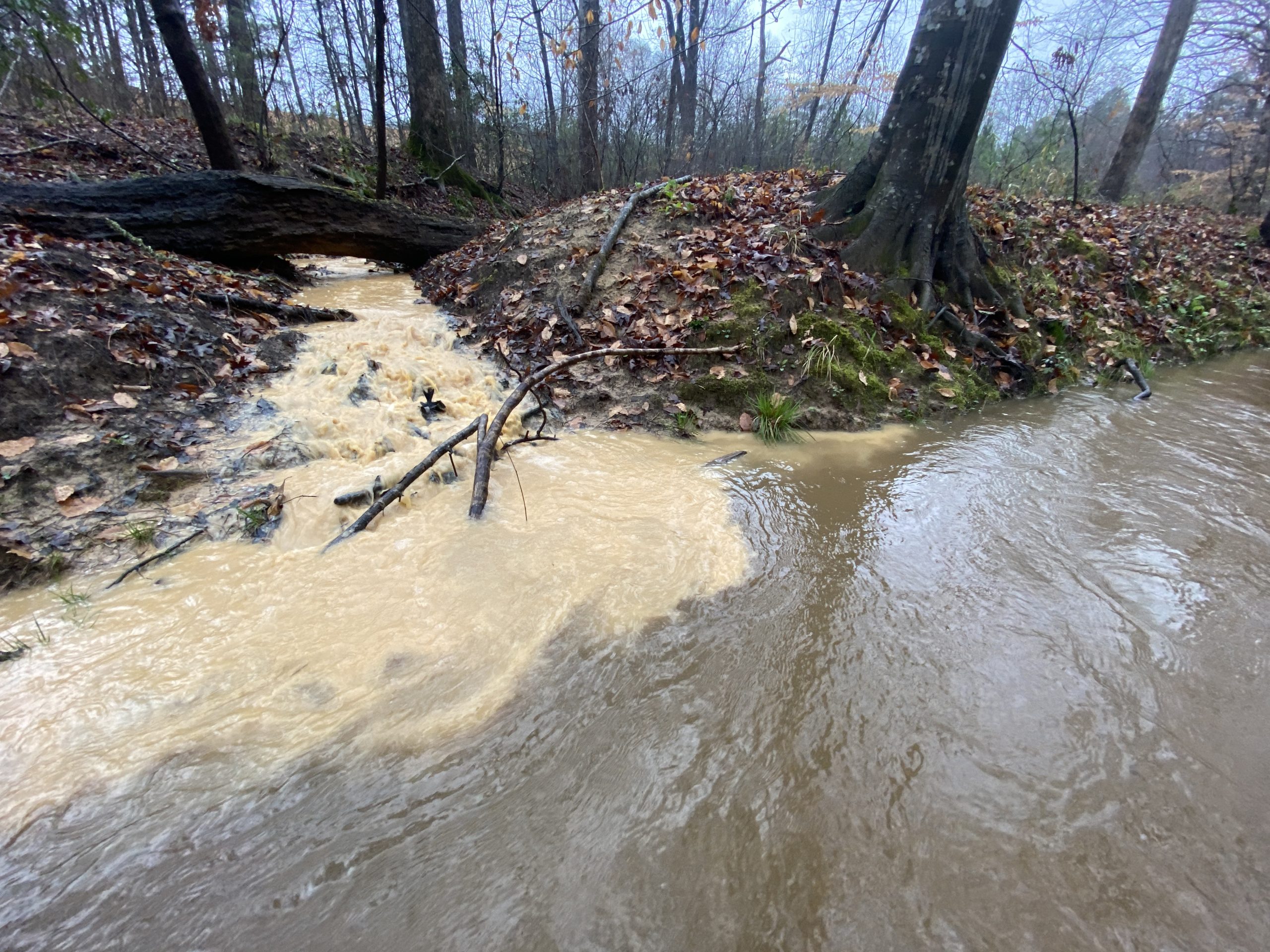Sediment
sewage
Coal Ash
Dams
impaired waterways
Nutrients
Did you know that sediment is one of the leading causes of water pollution in Alabama, the River State?
Stormwater runoff, and the sediment that comes with it, affects recreational opportunities, damages public and private property, and increases water treatment costs. Developers have a responsibility to ensure that their operations do not harm water quality for downstream communities who rely on these waters for fishing, swimming, navigation, and drinking water supplies. Coosa Riverkeeper monitors construction sites and will bring developers who fail to comply with the requirements of their permit back into complaints.
When it rains, stormwater washes over loose soil on construction sites throughout the watershed. As stormwater flows over the site, it can pick up additional sediment, debris, and chemicals from that loose soil and transport them to nearby storm sewer systems or directly into our waterways. That sediment muddies the water which harms wildlife, and eventually settles out of the water and onto the bottom of the river, which negatively impacts both wildlife and recreation. In addition to sediment, the sheer volume of water that crashes into streams from uncontrolled construction sites causes erosion and flooding, sometimes overtopping roads, filling private and public lakes, and damaging private property.
Examples of Failing Best Management Practices
on a Construction Site
Under stormwater permit requirements, developers must utilize Best Management Practices to prevent uncontrolled volumes of sediment from being washed away and to reduce the turbidity in downstream waterways.
If you see any of this in your community, please report it to us! Don’t forget to take pictures!




